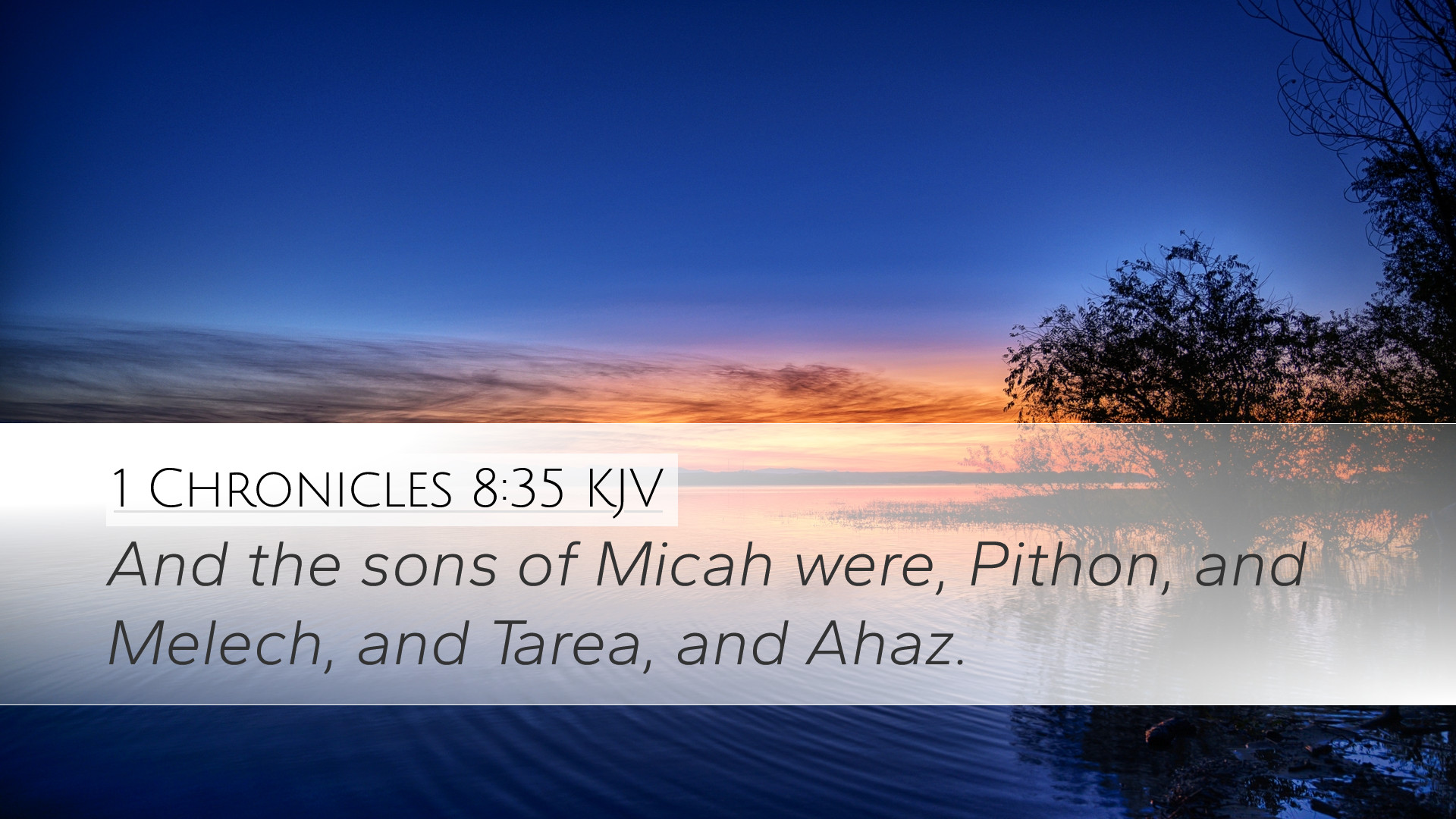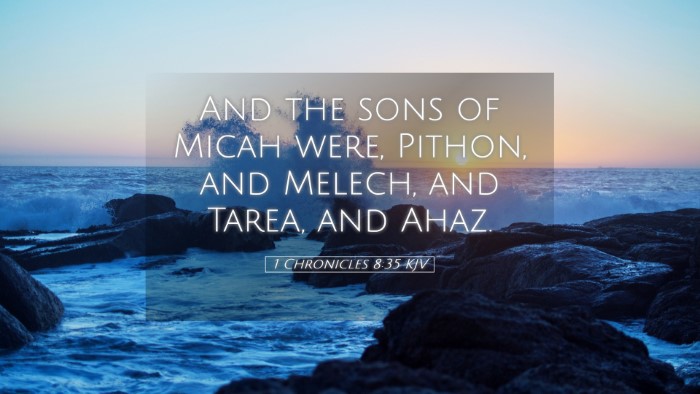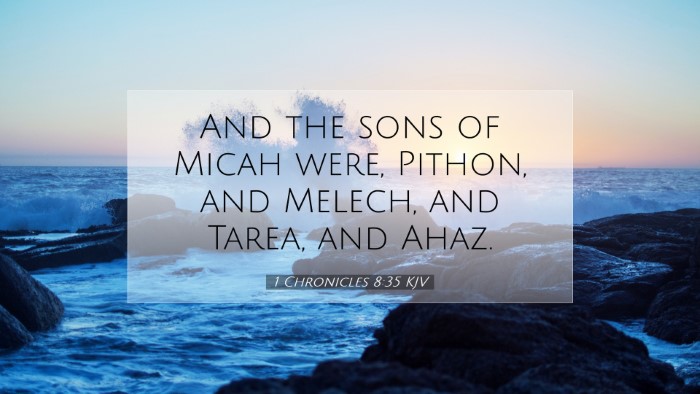Commentary on 1 Chronicles 8:35
Verse Reference: 1 Chronicles 8:35
"The sons of Micah: Pithon, and Melech, and Tarea, and Ahijah."
Introduction
This verse, while seemingly simple, encapsulates significant genealogical detail that contributes to the overarching narrative of Chronicles regarding the tribes of Israel and their significance. Genealogies in Scripture serve multiple purposes, including historical record, tribal identification, and theological reflection on God's covenant with His people.
Contextual Overview
The genealogies in 1 Chronicles represent a crucial aspect of Israel's history, particularly as they lead to the establishment of the kingdom and the temple work. In this section, we see a focused descent from Benjamin, emphasizing the significance of this tribe in both the past and future of Israel. Such details were vital for the exiled community who were reciting their lineage to establish their identity and standing before God.
Historical Significance
-
Tribal Identity: The mention of the sons of Micah signifies the importance of maintaining one's lineage and heritage in the face of displacement and return from exile.
-
Divine Providence: The continuity of these genealogies illustrates God's faithfulness in preserving a remnant, a theme consistent throughout Scripture.
Commentary from the Greats
To understand the depth of this verse, we turn to insights from respected commentators:
Matthew Henry
Matthew Henry emphasizes the genealogical significance of the names listed here, noting the adherence to God’s promises through generations. He suggests that these names, while perhaps not immediately recognizable to modern readers, represent the faithfulness of God to those He has chosen and called. Furthermore, Henry argues that names reflect character and calling—suggesting that each lineage brings forth specific attributes and responsibilities as God’s people.
Albert Barnes
Albert Barnes provides a perspective on the cultural importance of genealogies in ancient Israel. He articulates that the recording of such names serves not only as a historical record but also as a means of affirming the identity of the descendants of Michah and their rightful place in the covenant community. Barnes notes that the names knowledge here, although perhaps obscure, would have held significant value for those who trace their lineage through this family, reinforcing their connection to the past and their future hopes.
Adam Clarke
Adam Clarke offers a detailed analysis of the names mentioned. He draws attention to the meanings behind the names—Pithon, Melech, Tarea, Ahijah—and how they may reflect certain traits or historical contexts useful for the study of the people’s character and experiences. Clarke suggests that understanding these names assists in appreciating God’s sustaining power over His people through various hardships and triumphs.
Theological Implications
The references to specific individuals within the genealogical record prompt deeper theological consideration:
-
Covenantal Faithfulness: The continuity of names speaks to a broader narrative of God's faithfulness across generations, a theme reiterated throughout Scripture, emphasizing that God works through individuals and families to fulfill His purpose.
-
Identity and Heritage: As modern believers, understanding our spiritual heritage can reinforce our identity in Christ. This verse challenges us to consider our own lineages and the spiritual legacies we hold.
Contemporary Application
This verse holds valuable lessons for contemporary readers, particularly pastors and theologians:
-
Importance of Scriptures: It reminds us of the importance of genealogical records in understanding God’s unfolding plan, encouraging the study of Scripture with diligence and reverence.
-
Connection to Community: It demonstrates the importance of community and lineage in understanding the family of God. As modern believers, we are part of an extended family with deep roots in biblical history.
-
Faithful Witness: The unnamed sons here may serve as a reminder that even those who seem minor in biblical accounts have a role in God’s story, encouraging believers to see their significance in God's vast narrative.
Conclusion
1 Chronicles 8:35 encapsulates a profound understanding of identity, heritage, and divine faithfulness through the lens of genealogy. With insights from revered commentators, we see not just names but a rich tapestry of God's enduring love and promise to His people. For pastors, students, and theologians, this verse serves as a cornerstone for understanding the covenantal themes that resonate throughout the historical texts of the Old Testament.


